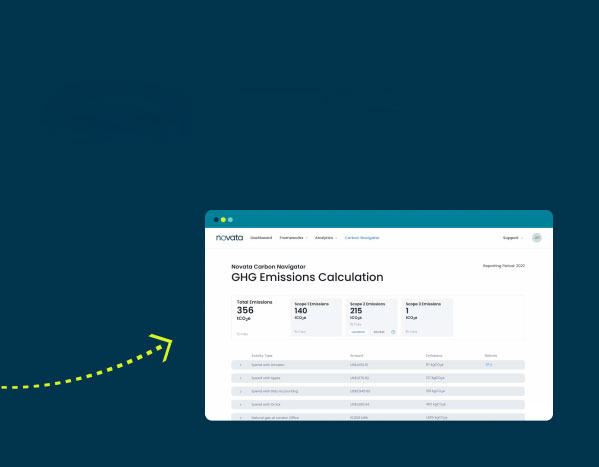The Corporate Sustainability Reporting Directive (CSRD) has paved the way for a new era of transparency and accountability for businesses across the European Union (EU). With its broad scope and ambitious goals, questions naturally arise regarding its enforcement. How will such a far-reaching regulation be upheld? In this article, we delve into the mechanisms and trends surrounding CSRD enforcement, shedding light on the approaches individual countries are taking to ensure compliance.
How Will the CSRD Be Enforced?
Enforcement of CSRD compliance will be left to individual countries. Regulatory authorities in each EU member state are responsible for monitoring compliance with the CSRD, and they may conduct investigations and audits to ensure companies are meeting the reporting requirements. This means that enforcement procedures and penalties could look quite different across jurisdictions. EU member states have until July 6th, 2024, to implement the CSRD requirements into national law and confirm what the penalties will be, and such penalties should be “effective, proportionate, and dissuasive.” We’ll be following this and providing a full update after the July 6th deadline, but in the meantime, here are some important trends that we are following.
Current penalties for non-compliance
The CSRD is a European directive. The specific nature of this type of EU law means member states will have to transpose the directive into domestic law as it is not directly applicable under domestic law. In this context, transposing means that the country has to pass a law that mirrors the directive. The CSRD is silent on penalties for non-compliance and leaves enforcement and compliance to each member state. Because only five countries have transposed the CSRD thus far, it is unclear what sanctions for non-compliance across the EU will look like and how each country will approach enforcement. Additionally, each country will determine which organs (judicial and/or administrative) will be tasked with enforcing the CSRD. These can include prosecutors, financial regulatory bodies, and other administrative agencies.
France is the only country that has currently integrated the CSRD into its national laws. The regulations include monetary fines (up to €18,750) and additional penalties (such as exclusion from public procurement contracts) for not publishing the sustainability report. There are also criminal penalties, such as a fine of up to €375,000 and a maximum of five years in prison, for not appointing an accredited independent third party for assurance or obstructing their audit.
Compliance hot spots
As it is unclear how CSRD will be transposed within each country, we can only speculate at this point what the hot spots will be. Such speculation is mainly based on the types and volume of disputes that have occurred recently surrounding ESG topics in the EU. Over the last few years, the number of ESG disputes has increased in Europe and litigations are getting more creative. ESG dispute hot spots in the EU currently include Germany, the Netherlands, and France, where companies have faced legal action for the impact of business activities on the environment. CSRD enforcement hot spots will likely align with this trend.
Industries vulnerable to enforcement disputes include finance, energy, travel, automotive, agriculture, tech, social media, apparel, and consumer electronics. For instance, there is a new wave of disputes targeting financial institutions for misdeeds committed by their clients. 17 European airlines saw a complaint for misleading claims surrounding sustainable aviation filed against them by the European Consumer Organization and other agencies. Apparel and consumer electronics are vulnerable in part because of the two new forced labor and due diligence regulations recently approved by the EU Parliament. Energy companies are also often targeted for greenwashing and their negative impacts on the environment.
Growing greenwashing backlash
Greenwashing is perhaps the area companies have the most control over as it concerns misleading or inaccurate communications on sustainability matters. Companies are now being held legally accountable for sustainability claims and disclosures. Because disclosures are made online across various geographies, companies can be liable in different jurisdictions. While disputes against energy companies are already common, the EU is seeing disputes across very different industries. For instance, a Swedish dairy producer was recently sued for misleading claims about the climate impact of its packaging. As regulators across the globe increasingly mandate ESG disclosures, accuracy of ESG data and information will become a legal imperative.
It is also worth noting that legal risks extend beyond the CSRD and its national implementations. Disclosures about ESG impacts, risks, opportunities, or measures taken to address them will face increased scrutiny from regulators worldwide. Allegations of greenwashing are becoming more common, and companies may encounter civil and regulatory actions in various jurisdictions (including those outside of the EU) under tort law, misrepresentation, securities law, and reputational risks.
Typical Consequences for Non-Compliance
- Civil and Criminal Liability: Companies and their leaders may face fines, monetary sanctions, and even incarceration for failing to meet the reporting requirements or for providing incomplete or misleading information in their sustainability reports.
- Reputational Damage: Non-compliance can result in reputational harm, which may affect a company’s relationships with investors, customers, employees, and other stakeholders.
- Auditor Liability: If an independent auditor fails to detect or report non-compliance, they may also face penalties or legal consequences.
- Investor Scrutiny: Investors and stakeholders may place increased scrutiny on companies that fail to comply with the CSRD, potentially leading to divestment or other negative consequences.
Moving Toward CSRD Compliance
Overall, it is important for companies to take CSRD compliance seriously to avoid penalties and maintain trust with their stakeholders. Member states will have their own specific enforcement mechanisms and penalties in place, so the exact consequences of non-compliance may vary across the EU. Novata will be providing updates on this topic over the coming months as and when further updates are made available.
Take our CSRD Assessment to understand whether your company could be in scope of the regulation. Novata’s suite of expert services, paired with our leading ESG data management platform, removes the operational burdens and uncertainties associated with the CSRD and positions you for success in your CSRD initiatives. Get in touch with us.






